Despite talks to see if a nuclear deal can be struck, Washington is amassing military forces in the region.
Iranian officials have warned that Tehran would retaliate by targeting U.S. military bases in the region.
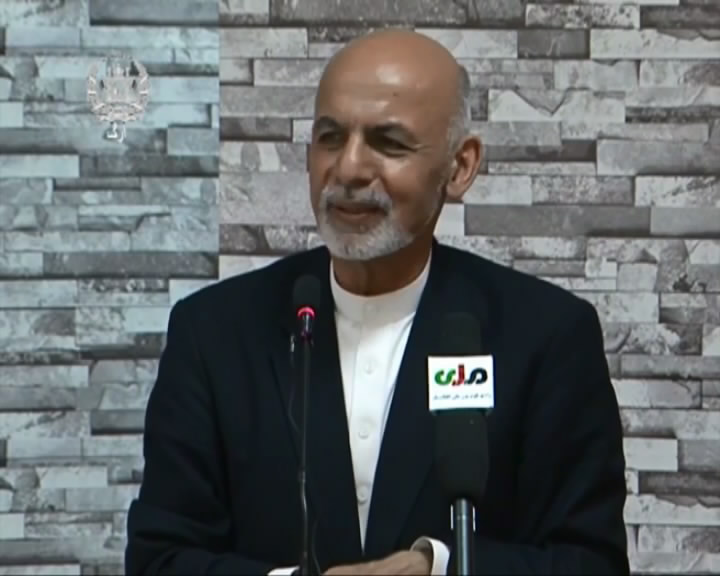
President Ashraf Ghani on Monday called on religious scholars, tribal leaders and civil society to mobilize for rejecting any extremist actions in the country.
While commemorating the international day of Human Rights, President emphasized that extremism is not incompatible with the logic of peace, stability and progress.
Following the recent attacks, now President Ghani considers the mobilization of people the only way to end extremism.
Extremist groups activities in Afghanistan comes at a time when extremism and the violence waged under such ideology, might be at its peak in the country.
At the same time, political deadlocks caused by the struggle over power combined with the failure of the government in the country and the wider region to respond to the legitimate aspirations of people have significantly undermined the government’s legitimacy in the country, thus calling into question the very concept of modern nation states.
Additionally, over the past decade, extremist ideology and violent jihad has been systematically promoted in Afghanistan by regional states, such as Saudi Arabia, Gulf countries, and Pakistan’s powerful military establishment and their proxy groups.
These countries see violent extremism as a strategic instrument to gain leverage in regional politics.
On the other hand, the sectarian struggle of dominance by Saudi Arabia, Turkey, and Iran have directly and indirectly created the conditions for the growth of extremist ideologies — making Afghanistan more hospitable for ideologies.
Given the fertile ground created by the historical events in Afghanistan, it is no surprise that the extremist groups aims for the smooth and rapid increase of their influence in the country.
Above all, critical tasks lie ahead for the countries in the region themselves. And among them, Afghanistan must treat the matter seriously.
Otherwise, the country may descend into a new abyss of devastating religious and sectarian violence like Iraq and Syria.
Meanwhile, the Human Rights commission in Afghanistan urged the parties to not use civilians as victims of their conflicts.
Reported by Wahid Nawesa

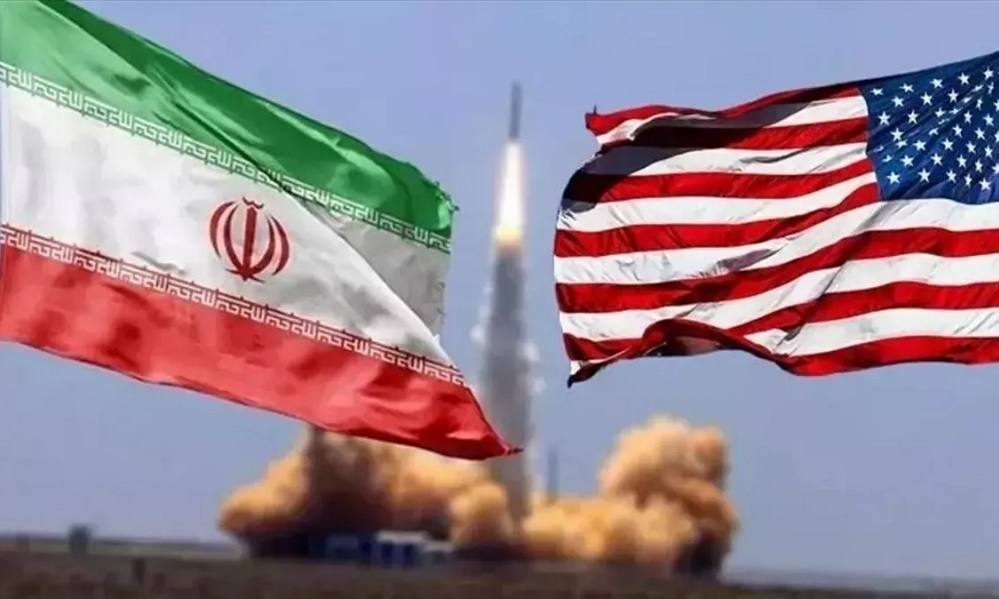
Zabihullah Mujahid, spokesperson for the Islamic Emirate of Afghanistan (IEA), said that in the event of a possible conflict between Iran and the United States, Iran would have the capacity to emerge victorious.
Speaking in an interview with Iran Radio, he emphasized that the Islamic Emirate does not support war, but believes that “the Islamic Republic of Iran was ultimately successful the last time it faced an attack, and this time as well due to its capabilities and its legitimate right to self-defense” it would have the upper hand.
Mujahid added that, if formally requested, Afghans are prepared “to the extent of their ability” to cooperate with the Iranian people in addressing the potential consequences of such a conflict.
Despite talks to see if a nuclear deal can be struck, Washington is amassing military forces in the region.
Iranian officials have warned that Tehran would retaliate by targeting U.S. military bases in the region.
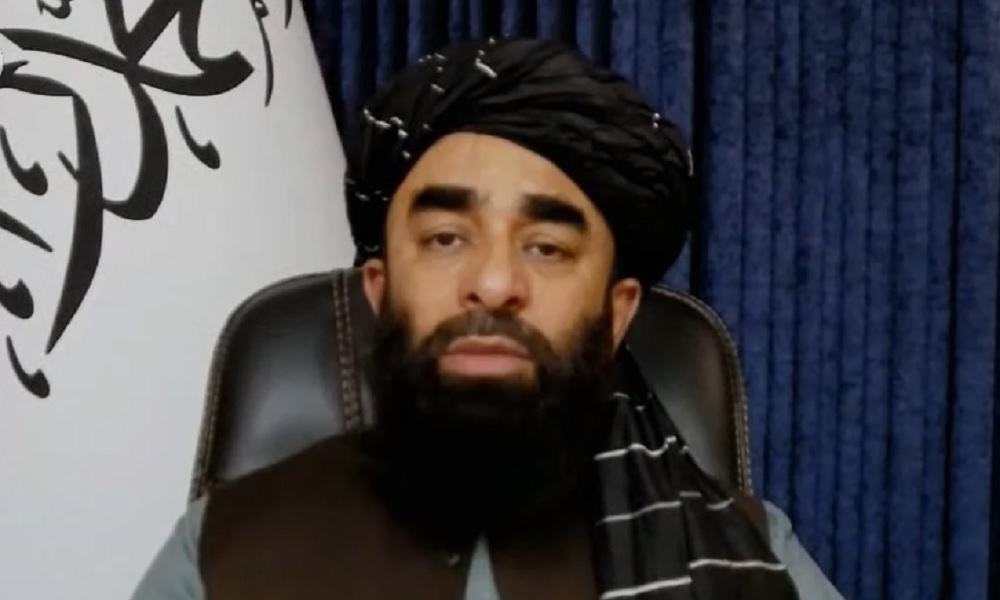
Zabihullah Mujahid, spokesperson for the Islamic Emirate, says the recent attack on a mosque in Islamabad was the consequence of Pakistan’s longstanding policy of “nurturing Daesh.”
The attack, carried out over a week ago, killed 31 people and injured 170 others.
In an interview with Iran Radio, Mujahid stated: “Daesh is an enemy like a snake; if you raise it in your sleeve, it will eventually bite you.”
He argued that Pakistan’s instrumental use of Daesh for “covert and intelligence-driven objectives” harms not only the people of Pakistan but also has negative repercussions for the people of Afghanistan.
Mujahid once again rejected allegations that the Islamic Emirate supports Tehrik-e Taliban Pakistan (TTP). He emphasized that no unauthorized armed individual is allowed to operate inside Afghanistan. According to him, the Islamic Emirate had expressed readiness to facilitate the return of “Waziristani migrants,” but Pakistan declined the offer. Instead, at Pakistan’s request, these families were relocated from areas near the Durand Line to other parts of Afghanistan.
Mujahid added that crossing closures have harmed traders in both countries, though he claimed Pakistan has suffered more. He said the crossings will not be reopened unless Pakistan provides a “guarantee” that it will not repeatedly close them due to political considerations.
The minister also called on Afghan business leaders to support the poor and displaced during the upcoming month of Ramazan, urging them to allocate their Zakat to vulnerable citizens.
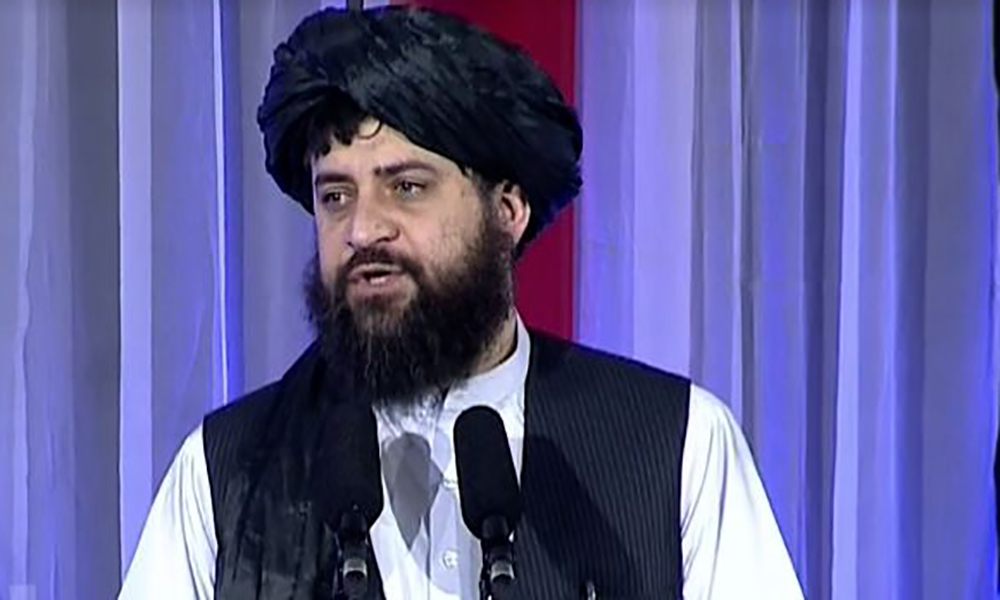
Afghanistan’s Defense Minister, Mohammad Yaqub Mujahid, emphasized the importance of leaving past conflicts behind and setting aside divisions in order to prevent future internal strife.
Speaking on Sunday at a ceremony commemorating the 37th anniversary of the defeat and withdrawal of Soviet forces from Afghanistan, Mujahid warned that a desire for revenge could threaten the stability of the current system.
He stated, “Those who seek power today are no longer even remembered in graves. If you think of the future, think for the people and the nation, and leave a legacy that future generations can be proud of, like our past heroes.”
He underscored that true merit is not determined by language, ethnicity, or position, but by piety and integrity.
The minister also called on Afghan business leaders to support the poor and displaced during the upcoming month of Ramazan, urging them to allocate their Zakat to vulnerable citizens.
“My special message to businessmen is: do not forget your people, and always help them,” Mujahid said.
Highlighting the importance of public cooperation in security, Mujahid added, “Afghanistan today enjoys exceptional security. Citizens must work with security forces to maintain stability. Some countries do not want Afghanistan to be secure; they see their own security in our instability and wish to prosper at the expense of our nation.”
Addressing neighboring countries and the international community, Mujahid affirmed, “Afghanistan is an independent country. We assure all countries that Afghanistan has no threat or bad intentions for you and we will not allow our soil to be used against neighboring countries and we have been able to contain threats against other countries and in this regard, we have full ability and do not need anyone’s help and cooperation.
“We have one request from countries not to create problems for us and not to make excuses, we are ready for any kind of dialogue, but based on mutual respect and national interests, we are ready to negotiate and we will not accept anyone’s orders in this regard, and if someone makes excuses, our message is clear: this approach benefits neither you nor the Afghan people.”
He further stated that even countries that previously invaded or occupied Afghanistan are invited to build relations, but always based on mutual interest and respect. He called for the establishment of a “fresh page” for positive and constructive relations.
Meanwhile, Abdul Salam Hanafi, Administrative Deputy of the Prime Minister’s Office, said that the Afghan nation has never accepted foreign occupation. He said this day in Afghanistan’s history was unforgettable and a source of national pride.
He added that under the Islamic Emirate, drug trafficking and cultivation have been banned, families of martyrs receive designated support, and all orphans are cared for without discrimination, with approximately 13–14 billion Afghanis allocated for their welfare.
Hanafi also emphasized that drug addiction among youth was fueled by foreign powers, while its treatment is now managed by the Islamic Emirate.
Hanafi concluded by urging civil servants to treat the Afghan people with compassion, remain humble in office, and utilize all available resources to preserve the Islamic system.
Separately, Noor Muhammad Saqib, Minister of Hajj and Religious Affairs, highlighted the need for constant preparedness against threats, stating that Afghans should not rely solely on past victories over powerful nations but remain vigilant against any potential dangers in the future.


Afghanistan’s semi-final hopes hang in the balance after two T20 World Cup defeats
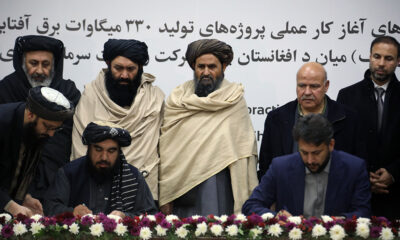

Afghanistan signs 845MW Power deal with Azizi energy; Baradar meets company Chief to advance investment plans


AFC Champions League Elite delivers key results as race for knockout stage intensifies
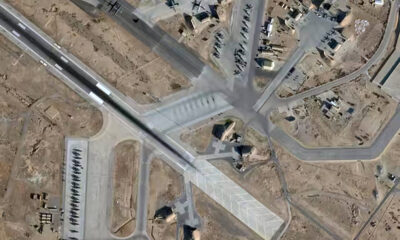

US used mobile launchers for missiles at Qatar base as Iran tensions rose, satellite pictures show


AFC U17 Men’s Asian Cup Saudi Arabia 2026 Draw sets stage for continental showdown
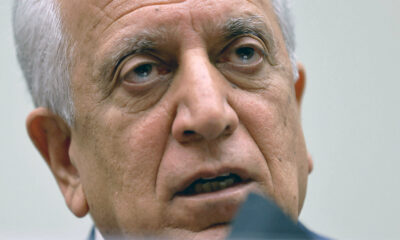

Khalilzad questions whether Pakistan played a ‘double game’ in Afghanistan war


Israel’s Netanyahu expected to press Trump over Iran diplomacy


Pressure rises on Dubai port giant DP World over chief’s alleged Epstein ties